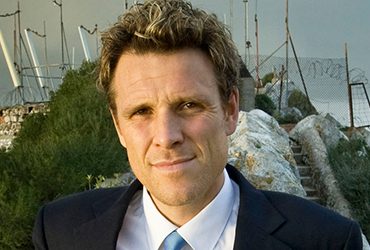Rather ironically, the best analogy I can summon to describe my appointment and role with Policy Exchange as senior research fellow on Obesity and Physical Activity is an enormous buffet made up of your favourite food. The problem would be deciding where to start and then knowing when to stop. Sadly, the obesity and inactivity pandemic heading our way is larger and more intimidating than the dream buffet.
It was while reading the October 2007 Foresight report, ‘Tackling Obesities: future choices‘, that I became acutely aware of the juggernaut heading in our direction. The paper predicted that by 2050 three in five adult men, half of all adult women and a quarter of our children under 16 could be obese. The attributable costs to the NHS would be in the region of £10bn a year; the wider costs to society almost £50bn.
Today’s children are the first generation to have lower life expectancy than their parents, as childhood obesity worldwide has nearly doubled since 1980. According to World Health Organisation data:- ‘No country has recorded a significant fall in obesity since 1980. The most rapid rises are in rich, developed countries.’
I find it distressing that the pandemic of physical inactivity, high fat, salt and sugar diet has led to obesity and excess weight becoming the ‘new norm’ throughout Europe.
Preventing obesity is a societal challenge, similar to climate change. It requires partnership between government, science, business and civil society. I’m as guilty as the next person of using the tried and trusted ‘ostrich technique’ when confronting a problem. But burying our heads in the sand isn’t going to effect the change we need as a society.
My favourite quote is one by Abraham Lincoln who said, ‘If I had five hours in which to chop down a tree I’d spend three sharpening the axe.’ We may have missed most of our axe sharpening window; but small behavioural and practical changes will have a significant effect. The consequences, both positive and negative, are going to be felt by every level of society, both economically and physiologically, because the problem impacts every socio economic group and every age group.
During my time at Policy Exchange I will analyse the effectiveness of the numerous national and international initiatives, policies and projects, learn lessons from them, and make robust suggestions to policy stakeholders to deliver change.
Where to start? By encouraging young children into good eating and activity habits. At the moment one in five children are obese when they start school and one in three children are obese when they leave primary school, of which 82 per cent will be obese adults. It’s not only their health that suffers. The correct balance of diet and activity will boost concentration levels and, by extension, educational performance.
The same performance and productivity is vital in the workplace, whether it’s a private company or the public sector, and we need to make it easy and ‘natural’ for people to make the right choice when it comes to food and physical activity.
And we can’t have a situation where senior citizens (in our ageing society) have to choose between travelling to and from a leisure centre or buying food and heating their house.
The most powerful motivation for change is that the healthier we are, the more we’ll enjoy our lives and our children’s lives. Since London 2012 the word ‘legacy’ has been overused; but tackling the obesity problem is the best legacy we can leave the next generation. I’ll end with a statistic. Team GB finished a brilliant 3rd in the medal table at London 2012; but Britain’s women are 1st and men 2nd in the European Obesity League Table.
This blog originally appeared on the Spectator’s Coffee House website.

